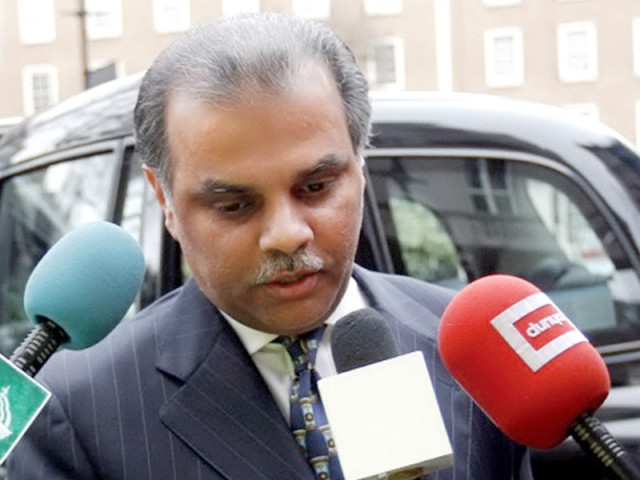Memogate commission: Ijaz denies opposing Pakistan’s nuclear programme
Haqqani’s counsel seeks to establish Ijaz’s credentials as a national enemy.

The protagonist of the Memogate scandal Mansoor Ijaz on Wednesday said that he was never against Pakistan’s acquisition of nuclear technology for peaceful purposes or defense of the country. The illegal sale of nuclear technology for the benefit of rogue elements of the state, however, was unacceptable to him.
Replying to questions of Zahid Bokhari, counsel for former ambassador to the US Hussain Haqqani, Ijaz said he wrote an article on nuclear proliferation shortly after Dr Abdul Qadeer Khan admitted to selling nuclear technology and secrets to other countries. Asked if he had any evidence for the article, Ijaz replied that he relied entirely on Khan’s confession.
During cross-examination, Bokhari attempted to make a case that Ijaz was an enemy of Pakistan.
Referring to another article published in Gulf News by Nina Gopal, he asked Ijaz if he had arranged a meeting between Yasin Malik and C D Sahay, a former head of Indian intelligence agency, the Research and Analysis Wing (RAW).
Ijaz admitted to arranging the meeting but clarified that Sahay was not heading the agency at the time. He denied it being a paid assignment by RAW and added that the meeting involved American interests.
Ijaz denied the allegations levelled by Bokhari that he was involved in destabilising different governments. Referring to another article, Bokhari asked Ijaz if he intended to dislodge the government of Sudan and had written a memo to Sandy Berger, a former deputy national security advisor to Bill Clinton, in this regard.
“This is ridiculous,” replied Ijaz. He admitted, however, that he had met with the Sudani Chief of Intelligence Lieutenant General Gutibi Al-Mehdi.
Ijaz also admitted to having relationships with more than two dozen intelligence agencies in the world but refused to answer if he worked for those agencies.
Ijaz said that he did not have any official status in the US and he has never been elected for any public office, adding that he is not even registered as a lobbyist in the country. He claimed to have played his role in his personal capacity as a private citizen of the US for the interest of his country.
Earlier at the outset of the proceedings, the commission found the transcript of the conversation of helicopter pilots and Pakistani air traffic controllers on May 2 unauthentic. The commission also expressed dissatisfaction over Hussain Haqqani’s reply to the evidence provided by Ijaz.
Published in The Express Tribune, March 16th, 2012.



















COMMENTS
Comments are moderated and generally will be posted if they are on-topic and not abusive.
For more information, please see our Comments FAQ